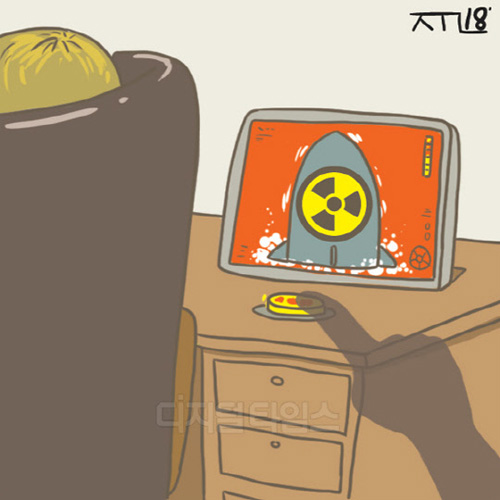Accidental nuclear war by hacking?…Warning on “Nuclear weapon system rearrangement”
Lee Gyung Tak | kt87@ | 2018-01-17 10:54:10

Chatham House, the world`s think tank for diplomacy and security, recently warned of a nuclear war crime through its report "Cyber Security: Threats, Vulnerabilities and Outcomes" of the Nuclear Weapons System.
Chatham House consulted with various agencies and experts such as the United Nations Disarmament Research Institute (UNIDIR) to check the data processing technology and communication infrastructure of the command and control center and missile platform inside the nuclear weapons system. According to the report, the nuclear weapons system was developed at the time the computer was just commercialized, with little or no consideration given to potential and malicious cyber security vulnerabilities.
The United States, Britain, Russia, France, and China have five countries that are globally recognized as nuclear weapons states under the NPT. In addition, India, Pakistan, Israel, Iran and North Korea are unofficial nuclear weapons states.
Chatham House analysis shows that there are a number of ways that hackers can penetrate the world`s nuclear weapons systems due to human and systematic errors and design vulnerabilities. If left untouched by the current nuclear weapons system, it could lead to dangerous consequences such as accidental firing of nuclear weapons when a hacker is manipulated by data manipulation.
"Once a hacker spreads malicious code to a nuclear weapons system, the attacked government can make fatal decisions such as launching nuclear weapons based on false information," Chatham House said.
In fact, an alarm that a ballistic missile was fired into Hawaii in the US on May 13 was mistakenly issued during the inspection of the operation, and the site was confused. If a similar situation arises, the risk of importing can be felt. As the war broke out, former US Defense Secretary William Perry warned on Twitter that the risk of accidental nuclear war is not a hypothesis. Accidental accidents have been in the past and humans will repeat mistakes.
"The weakness of cyber security in the nuclear weapons system leads to the worst cyber attack, and it is directly related to the confidence in military capability," said Chatham House. "We need to publicize this issue in academia and civil society so that governments can re- I will do it. "
Meanwhile, the Pentagon is expected to report President Trump to the 2018 Nuclear Posture Review Report, requesting the expansion of nuclear weapons and the development of low-level nuclear weapons. This is in contradiction with the US government in the past, raising concerns that governments of all nations could bring about the development of nuclear weapons. "I am really concerned about the danger of a nuclear war on the reporters in the chartered flight to Peru and Chile," Fernando Francis, 15, told Reuters that can be triggered."
By Lee Gyung Tak kt87@
